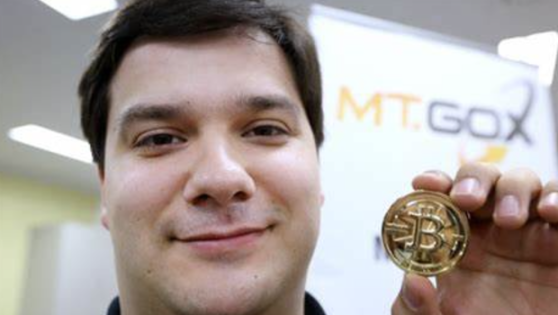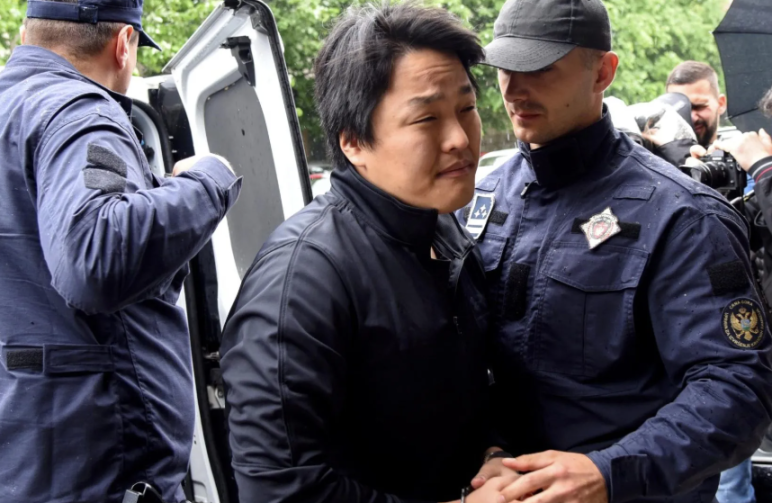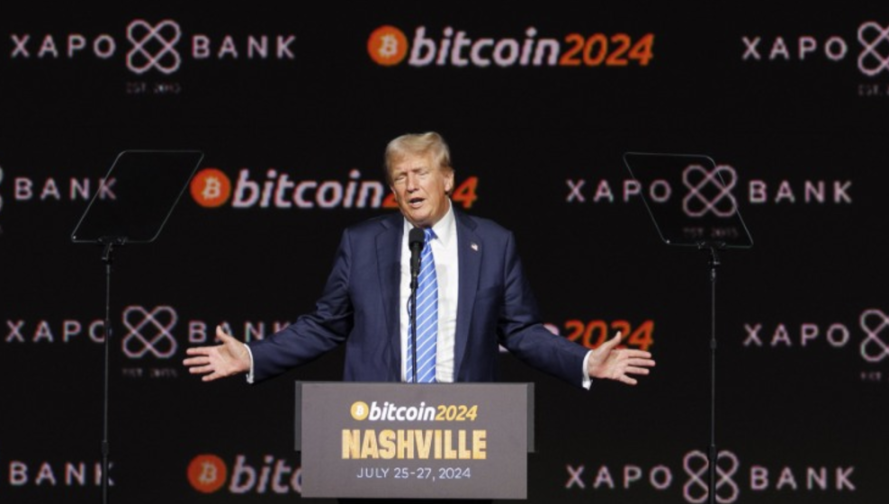The hearts of the crypto entrepreneurs "walking on a tightrope" can finally relax.
Written by: Mu Mu, Blockchain in Plain Language

Not long ago, former Binance CEO Zhao Changpeng was released from prison in the United States and reappeared in Dubai to attend industry events, dispelling speculation that he would be "detained" in the U.S. for a long time. Recently, Zhao Changpeng was also listed on the Hurun Rich List as the founder of the world's largest crypto trading platform. While people marvel at how even the wealthy can "get into trouble," they reflect on the history of crypto development, where many founders and executives of leading crypto companies have been arrested and imprisoned. Some have even compiled a long list of "entrepreneurial risks in the crypto space." One can't help but ask: Why is the "risk of imprisonment" for these crypto tycoons so high?
01 Crypto Tycoons "Walking on a Tightrope"
Since the birth of Bitcoin, the crypto industry has gone through more than a decade, during which many entrepreneurs have been imprisoned, including some once-prominent "tycoons."
In the list of entrepreneurial risks in the crypto space, there is the infamous "Mt. Gox incident." In 2014, the then world's largest Bitcoin trading platform Mt. Gox was hacked, losing hundreds of thousands of Bitcoins. The former CEO of Mt. Gox, Mark Karpeles, was convicted of "altering financial records" (some questioned whether he embezzled, but no evidence was found, and the theft incident remains unsolved).

Former CEO of Mt. Gox, Mark Karpeles
Recently, aside from Zhao Changpeng, the most notable figures from the last bull market include Luna founder Do Kwon and FTX founder SBF. One is awaiting sentencing for "securities fraud," while the other has been sentenced to 25 years in prison and fined $11 billion for "financial fraud."

Arrested Luna founder Do Kwon
In comparison, Zhao Changpeng's four-month imprisonment is relatively mild. His charge was "failure to implement an effective anti-money laundering plan, violating the U.S. Bank Secrecy Act." Specifically, it was that the company he managed (Binance) did not fulfill its anti-money laundering obligations and did not cooperate with U.S. sanctions. Although Binance is not a bank, whether it is fair or not, being involved in this matter is indeed unfortunate.
It is often said that crypto entrepreneurship carries risks, but the extent of those risks is surprising. Saying that the entrepreneurial journey of industry tycoons is like "walking on a tightrope" is not an exaggeration.
02 Five Key Reasons for the High "Imprisonment Risk" Among Industry Tycoons, with the Last One Being Crucial
The charges against these tycoons for imprisonment are quite varied. Before their imprisonment, each of them was a talented "child of destiny." If one were to say that they were merely "lacking legal awareness," that reasoning would certainly not hold water. By comparing and analyzing the events related to these tycoons' imprisonments, it is not difficult to identify some commonalities and underlying logic. Ultimately, it can be concluded that the "imprisonment risk" for industry tycoons is high for at least five reasons:
1) Unable to Resist Temptation, Radical Greed
In many cases, leading platforms and projects in the crypto industry are often required to manage tens or hundreds of billions of dollars in assets for users. In an era where guarding a mountain of gold and liquidity equals money, even without doing anything, one can still earn substantial profits. However, many ultimately cannot resist temptation and, driven by human nature, adopt radical strategies, misappropriating user assets to invest in high-risk markets, leading to ever-growing holes and ultimately catastrophic failures.
2) Innovation and Illegality Are Separated by a Thin Wall
Often, innovation means breaking existing rules. Crypto projects were once seen as decentralized internet financial innovations, during which old regulatory measures were certainly inadequate and regulations were not clearly defined. In most cases, it relied on innovative enterprises to self-regulate their behavior, but often, a small misstep could lead to situations akin to "P2P finance," which are difficult to resolve.

Although some countries and regions have a strong tolerance for regulatory measures regarding financial innovations like crypto, certain activities ultimately pose significant challenges to existing systems. Many times, there are no explicit regulations on what can and cannot be done, and where the red lines are. This leaves only a thin wall between innovation and illegality, which is a source of frustration for all entrepreneurs.
3) The Original Sin of "Crypto"
To this day, even though crypto assets represented by Bitcoin have long entered the mainstream, there remains a considerable portion of people who view it as a "dark" industry because it can be used for many illegal purposes, facilitating crime. Additionally, the various windfalls experienced by early crypto asset holders have led to perceptions of "unequal wealth distribution," fueling resentment.
Due to differences in understanding, those who do not recognize or accept crypto view the industry through tinted glasses. Many of these individuals are prevalent within the judicial system, leading to various legal challenges against crypto entrepreneurs and related projects when the "original sin of crypto" is laid bare before them.
Of course, as crypto assets become mainstream, more people are letting go of their prejudices after further understanding them, but one cannot expect a reversal overnight; this will take time.
4) High Global Compliance Costs and Numerous Challenges
Taking crypto trading platforms as an example, since these platforms typically cater to global users, global crypto asset financial activities, like other traditional financial institutions, must comply with different laws and regulations, as well as the long-arm jurisdiction policies of some countries. They also face difficulties created by regulators in certain regions who view them through a biased lens.
Traditional multinational financial institutions, such as PayPal, must apply for various licenses locally and deal with different regulatory policies and regulators in each country where they deploy related businesses. If any step is not executed properly, they may face local fines that can easily reach hundreds of millions, with the human and material resources invested being incalculable.
As early as 2022, Zhao Changpeng stated on social media that Binance had already spent over $1 billion on global compliance, and this figure is clearly on the rise. Coupled with the tens of billions in fines during this year's communication and settlement process with U.S. regulatory agencies, the total indeed amounts to an astronomical figure.
5) The Struggle for "International Discourse Power" in the Crypto Market
Since El Salvador announced its "All in" Bitcoin strategy, we have seen that national-level players have begun to enter the arena. Bitcoin and other crypto assets not only represent innovation in financial payments but also symbolize the future technology of the next generation of the internet, such as Web3. In the realm of innovative technology discourse, even if there are certain risks involved, most countries are unwilling to fall behind.
Take the previous cases as an example: the U.S. handling of FTX and the penalties imposed on Binance ultimately led to the imprisonment of their founders. FTX has disappeared from this track, while Binance has paid tens of billions to reach a settlement with regulatory agencies. Additionally, the settlement requires the U.S. Treasury to retain access to Binance's accounts and systems for five years.
The actions of various U.S. regulatory agencies are not merely aimed at maintaining stability in the financial market; they also serve to reprimand leading trading platforms, demanding that these platforms comply with U.S. long-arm jurisdiction and the rules set by the U.S., thereby setting a precedent for the crypto industry. Some countries are already showing signs of using blockchain and crypto assets for international trade to bypass the dollar's hegemony. For the U.S., Bitcoin and other crypto assets remain a "sword." If this sword cannot be "destroyed," it can only be controlled in some way or guided for its own use, making itself the biggest beneficiary.
With the U.S. deeply monitoring and handling platforms with significant discourse power in the crypto asset market, such as Binance, the long-pending Bitcoin spot ETF was suddenly approved, followed by the approval of the Ethereum spot ETF. Only then did U.S. capital feel "reassured" to flow into the crypto market through these secure channels, while the U.S. simultaneously brought the crypto market under its control and gained a certain degree of "pricing power."

Recently elected 47th U.S. President Trump mentioned in his speech at a Bitcoin conference that Bitcoin is not just a technological miracle; as you know, it is also a miracle of cooperation and human achievement. The reason he came to speak to the Bitcoin community is that he adheres to the "America First" principle. His vision is to make America dominate the future, ensuring that the U.S. becomes the crypto capital of the world and a superpower in Bitcoin.
03 Conclusion
For centralized platforms and project teams, regulation is an unavoidable issue. Countries and regions that effectively balance regulation and innovation will become the biggest beneficiaries of this technology and innovation. With the recent U.S. elections settled, the crypto-friendly President Trump is about to take office, which will bring a more favorable regulatory environment. It is believed that in the future, including Zhao Changpeng and other Bitcoin tycoons, crypto entrepreneurs can finally put their "anxieties" to rest and will "safely" promote the accelerated implementation of crypto and Web3 application innovations.
免责声明:本文章仅代表作者个人观点,不代表本平台的立场和观点。本文章仅供信息分享,不构成对任何人的任何投资建议。用户与作者之间的任何争议,与本平台无关。如网页中刊载的文章或图片涉及侵权,请提供相关的权利证明和身份证明发送邮件到support@aicoin.com,本平台相关工作人员将会进行核查。




